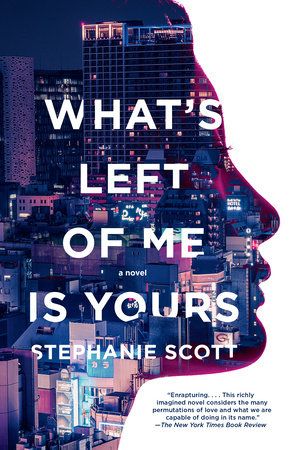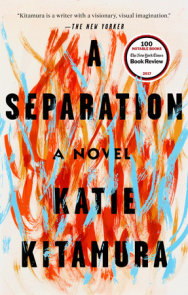READERS GUIDE
Questions and Topics for Discussion
1. Before reading the novel, had you heard of the wakaresaseya or “marriage breakup” industry? What do you think are the risks of this industry being allowed to operate? How does this relate to honey trapping in your own culture?
2. From the beginning, photography plays a large role in the novel. How does photography influence Sumiko’s telling of her mother’s story?
3. Sumiko notes early in the novel that the best lies are close to the truth. How does Kai prove this theory as he tells Rina about himself?
4. Sumiko observes that she struggles to imagine her mother as a young person, an individual separate from her motherhood: “When I think of her, it is as my mother, and I cannot picture her any other way.” Have you ever heard a story about a family member and struggled to reconcile this with your own image and experience of him or her?
5. This novel revolves around a murder, but we learn the identity of the alleged murderer relatively early in the story. How does that affect your reading of the events leading up to the crime?
6. Almost every character in the novel struggles to balance multiple roles: parent, lover, child, professional, etc. Who do you think struggles the most?
7. How do physical objects trigger memories and emotions for Sumiko and Yoshi after Rina’s death? Do you have any talismans that remind you of people you’ve lost?
8. How is the Japanese justice system similar to or different from your own? What do you think of Yurie Kagashima’s defense of Kai? Is it a fair defense?
9. What do you think Sumiko means when she says that every member of her family, including her, is guilty of her mother’s death?
10. How do you think knowing the full truth about her mother’s death will affect Sumiko’s life after the action of the novel concludes? What do you think will be the significance of her “choice” at the very end? And is it the right one?
11. Is the law a character in its own right?
12. Are the locations in the novel characters in their own right? How do they affect and shape the narrative?
13. What do you think of the novel’s title? How does it apply to all the characters?
14. What economic and societal constraints are faced by the men and women in the novel? Have any of these issues featured in your own life?
15. How does the novel depict the tension between personal desire and the pressure to conform to social norms?
16. The novel is a mediation of all the different forms of love. What does love mean to you? Who from the book best exemplifies this definition of love?




















